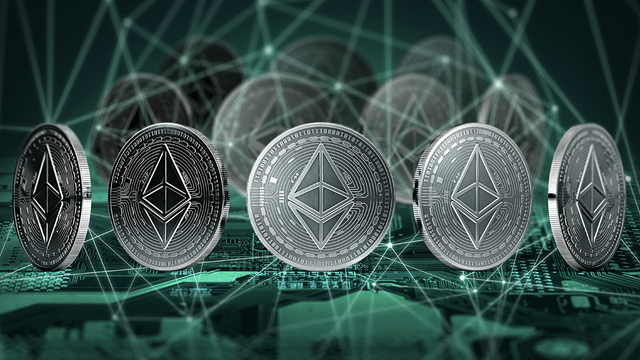Ethereum miners are on strike again? What's the matter with EIP-3368?
For current Ethereum network users, the transaction fee may be as high as $60. Reducing the ever-rising transaction fees is currently a major concern of the Ethereum Foundation.

The upcoming Ethereum London hard fork upgrade (expected to be carried out in July this year) plans to implement the controversial EIP-1559 proposal, which may cause short-term profit loss for miners. This is why the Ethereum Foundation is trying to ease Some miners carried out a "power demonstration" of a possible 51% attack on the network.
Some people believe that when the Ethereum network plans to switch from PoW consensus algorithm to PoS, the implementation of EIP-1559 will bring a sudden drop in mining revenue, which may lead to a sharp decline in mining profitability, which in turn will encourage miners to calculate Force "auction" to give the highest bidder. Some community members believe that if these computing power are obtained by a hostile mining pool, the Ethereum network may be attacked by 51% of the computing power.
At the same time, many Ethereum miners (represented by mining pools) began to collaboratively express their opposition, and also created a website called "STOPEIP1559" (https://stopeip1559.org/, see the picture below) To try to stop the proposed change. The website reads: “By joining forces, miners can work to delay or modify these proposals to improve the mining community.”
The website lists the mining pools that oppose the EIP-1559 proposal and support this proposal so far:
For a long time, Ethereum uses the so-called "Gas price" to price transaction costs. With the help of the "highest price auction mechanism", users send transactions to the Ethereum network for verification, and at the same time attach a sum they are willing to pay to the miners. Transaction fees; when miners package transactions, they are often the first to process transactions with higher transaction fees. Such a process makes it difficult for users to estimate "appropriate" transaction fees, so they often pay excessive fees or need to wait too long for transaction confirmation.
In response to this problem, EIP-1559 was planned to be activated during the London hard fork upgrade in July 2021, but it also caused a divergence between the miners and the core developers (and users) of Ethereum.
At present, due to the massive increase in DeFi projects, transaction costs have soared, allowing ETH miners to conduct high-profit mining. In addition, there is not enough block space to confirm all transactions immediately, which leads to network congestion, which in turn intensifies user transaction fee bidding. In order to allow their transactions to be confirmed first, it is often preferable to pay higher transaction fees, because contrary to the "first come, first served" principle, miners tend to process higher bid transactions first.
Currently, transaction demand is very high, and Ethereum users have to increase their tolerance for high transaction fees. At the same time, some Ethereum network users may also choose other lower-cost competitive blockchain platforms, such as Cardano, Polkadot, or Algorand. These blockchain platforms are now also enhancing their smart contract capabilities.
As a strategy to reduce losses to other competitive platforms, EIP-1559 can be seen as an attempt by the Ethereum Foundation to introduce a mechanism that will improve the predictability of transaction fees while ensuring that miners’ motivation is not just profit. maximize.
According to this proposal, each transaction paid by users includes BASEFEE (basic transaction fee) + Tip (tip), BASEFEE will be adjusted up and down in each block, and all BASEFEE will be destroyed, thereby reducing the amount of ETH in circulation.
The upgrade in this plan will allow part of the transaction fees to be "destroyed" instead of flowing into the hands of miners, resulting in a decrease in miners' gross profit margin. In practice, burning transaction fees also means removing some ETH from circulation and improving the transparency and predictability of transaction fees. If the proposal is successfully deployed, it may also turn ETH into a store of value similar to Bitcoin. the way.
ConsenSys developer Ben Edgington stated that Ethereum’s current transaction fee bidding mechanism is "a major problem with the availability of Ethereum and an obstacle to wider adoption of Ethereum by non-professionals." Therefore, EIP-1559 "is very popular among Ethereum users. Popular because it may make ETH a deflationary asset."
Dan Finlay, the lead developer of Ethereum wallet MetaMask, said that the "purpose of this proposal is to provide a more predictable transaction pricing system, reduce overpayments, and come with some collateral benefits of deflationary economics."

Lex Sokolin, ConsenSys' co-head of financial technology, also said that these changes will make network fees "shift from an unpredictable and unbounded pricing mechanism to a more predictable pricing mechanism."
The anonymous founder of Pylon, a major North American ethereum miner, said that miners have spent a lot of time and money building equipment and may now face serious losses due to these changes. He said: “(Ethereum) developers don’t mine, so they don’t care much about miners; and miners don’t engage in development, so they don’t care much about reducing network congestion.”
As mentioned above, some ether miners threatened to go on strike or tried to interfere in other ways to protest these changes.